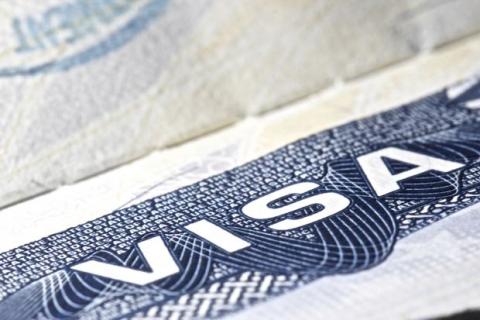If travel restrictions and online lessons weren’t enough, the US government has made some temporary changes to the usual F-1 and J-1 visa regulations to accommodate Covid-19.
A few different student visas are available to study in the US and now that the application processes have changed, it can be difficult to keep on top of the requirements.
Below is everything you need to know about the changes to student visa processes in the US that have come in as a result of the pandemic.
Can I still get a visa appointment?
The pandemic has meant that some US visa services are running at a limited capacity. The availability of visa appointments depends on your location and any local restrictions that may affect your nearest US embassy or consulate. Make sure you keep checking your local embassy or consulate for any updates about its operation level.
In 2022, the US will allow consular officers to waive in-person interviews for student visas in order to speed up the visa application process. In-person interviews will also be waived for visa renewals in the same category within 48 months of the prior visas expiration.
Can I get a visa to study in the US if my programme will be fully online for the 2021-2022 academic year?
This depends on when you began your course.
Currently, if you were enrolled in a course of study in the US before 9 March 2020, you should remain eligible to stay in or return to the US even if your course is entirely remote for the academic year 2021-2022.
If you’re a new student beginning an in-person or hybrid course with some in-person teaching requirement at a US institution in 2021, you should be eligible for a student visa to enter the US.
However, if you’re a new student beginning a course in the academic year 2021-2022 that will be conducted entirely remotely, current guidance advises that you won’t be granted a visa to enter the US. For the latest guidance, please see this document from the Student and Exchange Visitor Program (SEVP), which is updated regularly.
I’m planning on doing Curricular Practical Training (CPT). How has this been affected?
Curricular Practical Training, or CPT, is a chance for international students with an F-1 visa to undertake work experience related to their major (degree specialisation) through internships or cooperative education programmes. You must complete any CPT placements before graduating.
The pandemic’s effect on CPT depends on what changes have been made to your specific CPT placement, and whether you will be in the US while you do it.
If you will be doing your CPT in person in the US, you must apply for CPT authorisation as normal. If you will be working remotely for your CPT quarter but while you are in another location in the US, you must also apply for CPT authorisation.
However, if you will be outside the US for the entirety of your CPT internship, you do not need to apply for CPT authorisation, even if it’s with a company usually based in the US. If this is your situation, it’s worth keeping hold of any documentation to prove you are not in the US during this period.
I’m planning on doing Optional Practical Training (OPT). How has this been affected?
Optional Practical Training, or OPT, is a chance for international students with an F-1 visa to undertake work in the US if it is related to their course. OPT can be done before or after graduating. You can usually work for a maximum of 12 months through the OPT scheme, but several extensions are available for students of certain subjects, particularly those in STEM.
To be eligible for OPT, you need to have completed at least one year of study at a US university while in the US and have an active F-1 visa. Unfortunately, this has not changed because of the pandemic, meaning that if you have completed a year of study at a US institution remotely from another country, this year does not count towards your OPT eligibility.
However, if you have completed a year of study within the US and are eligible for OPT, you can complete a remote OPT placement from your home country.

Comments